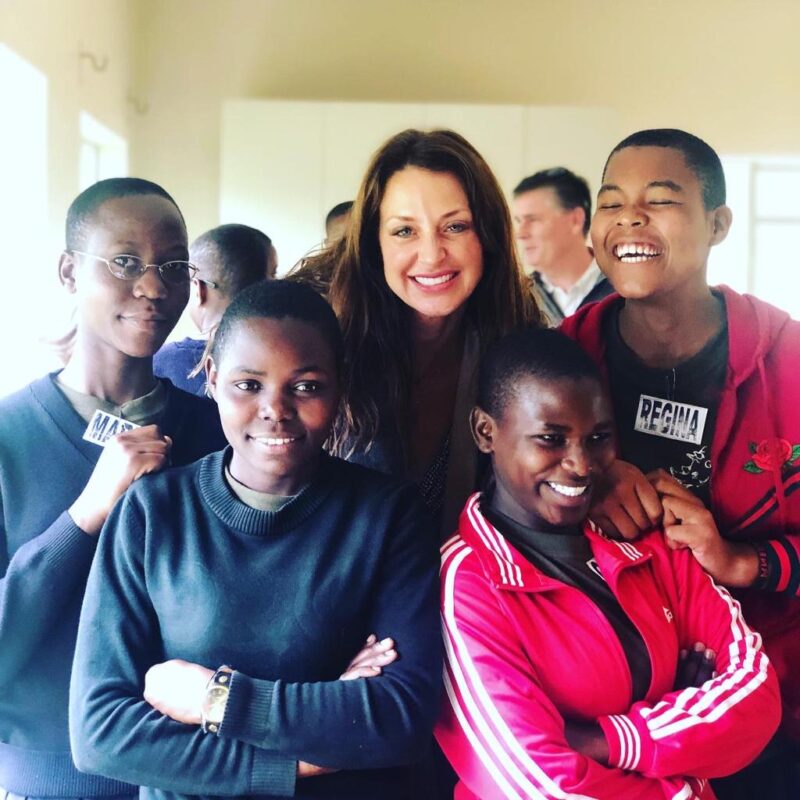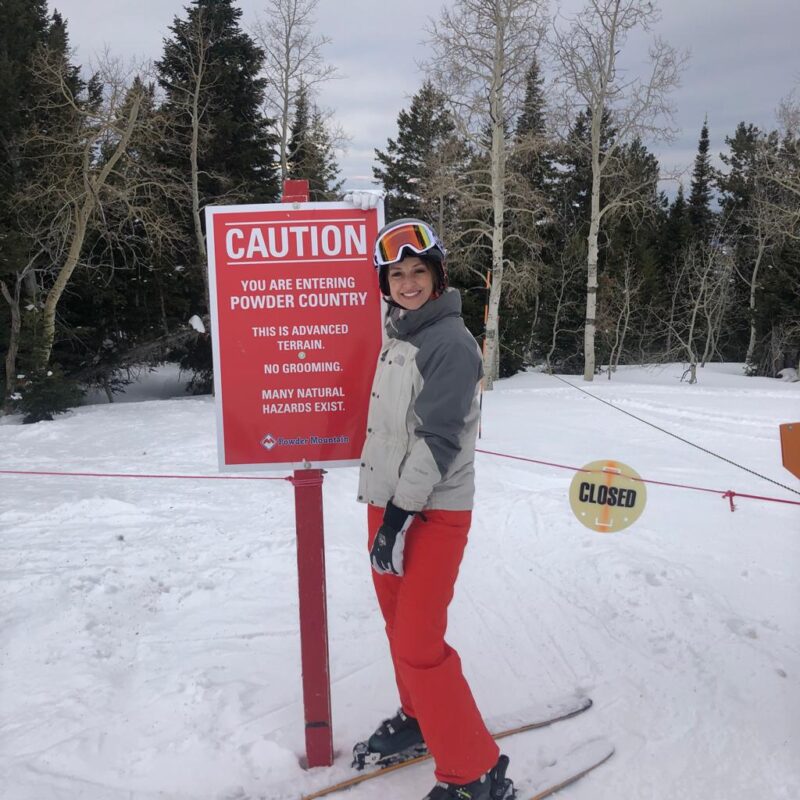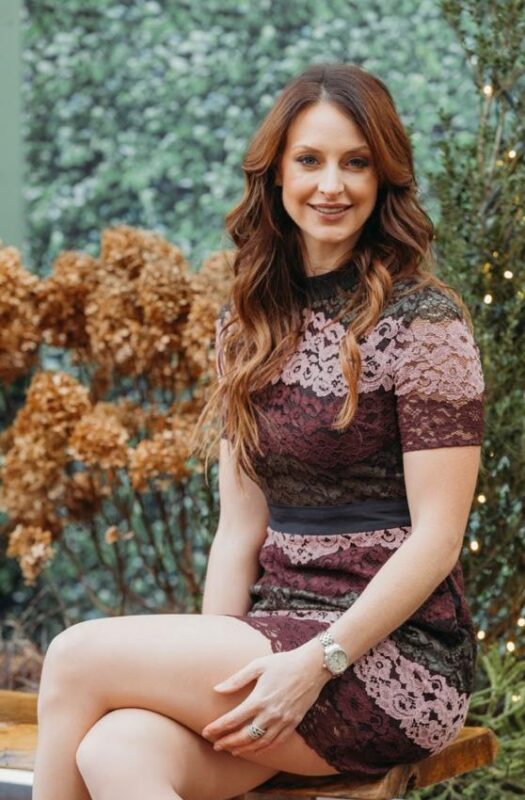Meet Taryn Marie Stejskal, Chief Resilience Officer in Resilience Leadership, internationally sought keynote speaker, executive coach, a doctor in neuropsychology. Author of the highly anticipated book: Flourish or Fold: The Five Practices of Particularly Resilient People. An athlete, an international traveler, and a philanthropist.
Enlarge

Who is Taryn Marie Stejskal? Define yourself
Any definition I write of myself, I write in pencil; I will be revising, defining and undefining myself, as a life-long process of finding myself. Today, I see myself as a deeply empathetic woman who has a heart to be of the service to the world through my work on understanding what makes people resilient. I am a writer and a poet. I never thought I would be able to carry a tune or play an instrument, but earlier this year, I decided to prove myself wrong, and rewrite that part of my self-definition; I began taking guitar and vocal lessons, and a whole new world is opening to me as I express myself through music.
I am a mother to two sons, Samson age 8 and Sawyer, age 6. Being a mother is both the greatest joy and the greatest challenge of my life – sometimes these moments of feeling like I am in a warzone and being in paradise shift within seconds of one another!
“We become the words we say to ourselves in our own minds. Thoughts are made of energy. When enough energy is gathered, that energy coalesces to create matter. So, quite literally, we create our experience through our thoughts”
How were you as a kid?
I became a card-carrying perfectionist early on in my childhood. I was very organized with neatly labeled folders for school, my clothing organized by color, and a bedroom that was impeccably orderly and clean. My perfectionism was my strategy for exerting control over my environment, when I felt like many aspects of my childhood were outside of in my control. My room, clothing, the grades I got, how I applied myself in sports, these were the things I could control and influence.
My parents would say I was a very good girl. My brother had a lot of issues in school and with his behavior (It’s worth mentioning that he is now a pillar of his community, an upstanding citizen who helps many people in his chosen profession as a paramedic firefighter). I felt like my parents were so busy attending to my brother’s needs that there was no room for me to be anything less than perfect. So, I carefully studied and played the role of the perfect daughter – I read the script and the costume fit. I would research summer camps to gain new skills when I wasn’t in school. I desperately wanted to attend Sea Camp, a marine biology camp in Big Pine Key, FL. I poured over the over the glossy brochure year after year, hoping I could attend. Growing up in Michigan, my family did not have the money to send me to a camp out of state that included airline flights.
Enlarge

I often worked two to three jobs during the semester to pay for my clothing, books, and incidentals while attending my courses. When I learned I could study abroad, I set my sights on studying in Florence the second semester of my Junior year. Once again, my parents didn’t have the money for one of my goals, but unlike Sea Camp, this time I was prepared. I worked my jobs and summers to ensure I had enough money for the flights and costs of travel while I was overseas. My determination was rewarded with an entire semester in Europe where I was fascinated by the majesty of Italian culture.
Throughout school, I got nearly straight As. I say nearly because I usually got a B in gym because I didn’t change into my gym clothes fast enough. I was on honor roll, in student government, and I was a very promising competitive swimmer. Also, I was devastatingly lonely. Yet, I never felt like I truly fit in. I was too tall to have a boyfriend or to be considered pretty. I was too pretty to be nerdy, to nerdy to be a jock, and too athletic to be …. Well, you get it. I was nice to everyone, but that didn’t help my case. In light of being pretty and tall and smart and athletic, the other girls were, often, at a minimum, suspicious of me, many of them envious. I didn’t feel that I fit in anywhere and was tremendously, heart-crushingly lonely.
“Self-love is about embracing ourselves with grace and patience, along with being very gentle and kind to ourselves. Self-love is about being our own caretaker”
You hold a bachelor’s degree in Psychology from the University of Michigan, obtained a Master’s in Marriage and Family Therapy (MFT), and you earned a Doctor degree of Philosophy (PhD) from the University of Maryland, why did you choose those courses of study?
More than anything, this course of study chose me. A close friend and fellow competitive swimmer had a spinal cord injury, and in an instant, became paraplegic a few weeks before he was to attend college on a men’s swimming scholarship. Instead of stocking up on things for his dorm room at Target, as they had imagined, his family was having their doorways widened and building lifts that would allow him to move from floor to floor accommodate his wheel chair.
His injury impacted me deeply; to see a vibrant person with his whole life ahead of him so changed by this irreversible tragedy felt devastating and unfair. When I visited him in the hospital, there was a lot of emphasis on his physical rehabilitation, but very little attention paid to his mental, emotional, and spiritual rehabilitation. As a result of this experience, I wanted to connect the field of Marriage and Family Therapy (MFT), the focus on the entire family system, not merely the patient. This quest took me on this academic path and led me to a pre- and post-doctoral fellowship in Neuropsychology, where my patients were the first people to teach me about the life changing nature of resilience.
Enlarge
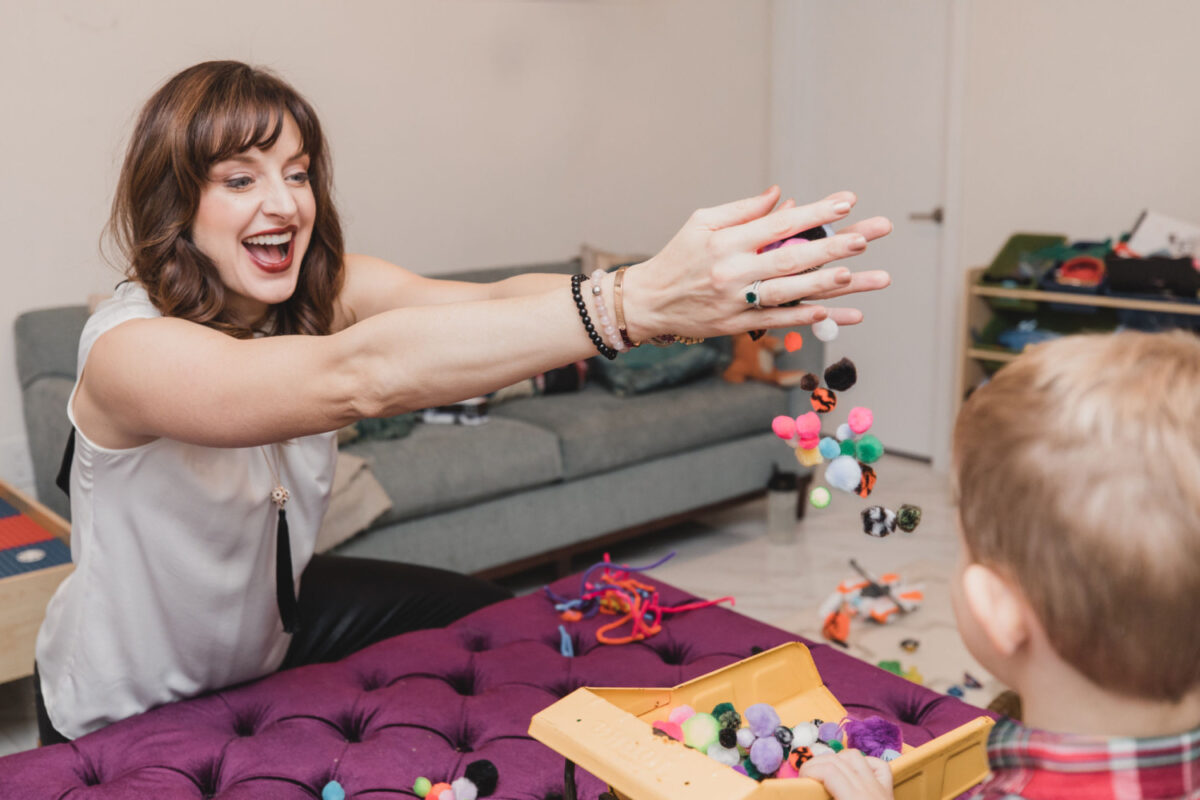
You were the former Head of Executive Leadership Development at Nike, Global Leadership Development at Cigna, Practice Leader, Leadership Development and Assessment at Career Consultants Oi Partners among others, how did you jump from that point to found your own company, Resilience Leadership, also you are a coach at Marshall Goldsmith Top 100 (MG100) Coach?
Great question. Life has a fascinating way of preparing us for our future long before our future arrives. Each of those positions prepared me to found my company, Resilience Leadership, even before I understood that I was to become an entrepreneur and focus on my research on what makes people resilient as the defining element of my career today.
This spring I was honored to be nominated to serve as one of Marshall Goldsmith’s Top 100 (MG100) coaches in the world. Coaches are typically chosen based on experience as well as for having made a unique contribution to the field of leadership coaching. This is not a paid position or company that I work for, but rather, an organization in which I am delighted to be a member.
Talking Resilience Leadership, can you in simple words explain what the company is about and what makes it unique?
Yes! In fact, my current life’s work is to explain and simplify resilience! We define resilience as facing challenge and allowing ourselves to be enhanced by the experience, rather than diminished. For over a decade I have conducted qualitative research to understand what behaviors enhance resilience by asking people a simple, yet powerful question which is: “Consider a significant challenge you have faced in the past: What did you do to effectively address that challenge?”
Based on interviewing hundreds of leaders and collecting thousands of elements of data, The Five Practices of Particularly Resilient People was born, the five behaviors that increase our resilience anytime we face a challenge, change, and complexity. We are unique because of the research I have conducted that informed the model. The evidence-based approach to resilience is the foundation for our keynote addresses, workshops and webinars, and executive coaching. In addition, we are unique in that our mission is to enhance human resilience and to support humanity in up leveling our collective human consciousness. It’s not just about the bottom line. It’s the double bottom line. We look at profit as well as our progress toward making the world a better place.
“If you want to be successful, surround yourself with other people who are successful, and a rising tide will lift all boats”
You are a very busy woman, and I see you have participated in different organizations: Corporate Executive Board at the Franklin Institute, Member at PSPS: Philadelphia Society of People & Strategy, what does it drive you?
I love to give back to my community. I subscribe to the idea that to whom much is given, much is expected. I have been given a great deal, so I see that I have a responsibility to give back. I serve as an ambassador for The African Conservation and Community Foundation (ACCF), and it has been a joy to align my passion for the environment, sustainability, and resilience with their mission and vision focused on land conservation, wildlife protection, and elevating the communities that surround the wildlife in Africa in order for the plants, animals, and people to collectively benefit.
You are the author of “Flourish or Fold: The Five Practices of Particularly Resilient People”, which is expected to be released as a book in 2021, is it ready? Where can people get the book?
It’s not quite ready yet – but 2021 is going to be a great year to release a book! You will be able to pre-order the book through the Resilience Leadership’s website soon, www.resilience-leadership.com, and of course, purchase the book at bookstores and online.
What’s the biggest lesson you’ve learned over the years?
This is such a hard question! I have learned so many lessons. However, above all, I have learned to love myself. My capacity to love others, our planet, is limited only by my capacity to love myself. The more I love myself, the more I can love others. As I have learned to love myself, I found that: “What follows ‘I am ____’, follows you.”
This means that we become the words we say to ourselves in our own minds. Thoughts are made of energy. When enough energy is gathered, that energy coalesces to create matter. So, quite literally, we create our experience through our thoughts. Self-love is about embracing ourselves with grace and patience, along with being very gentle and kind to ourselves. Self-love is about being our own caretaker. Our own best friend and lover. Our own protector. Once we do this for ourselves, we model love for ourselves to others, and we have a greater capacity to share our love with the world. Also, we’ll never settle for a person who loves us less than we love ourselves. So, by loving ourselves, we demonstrate how we want to be loved by others.
It seems you love fashion and there is a stereotype with psychologists that says you don´t care about their appearance that fashion is superficial, you are a brilliant woman and you have a sense of style, what would you say those people that have this wrong idea?
I believe this is a stereotype, that it doesn’t fit for me. I have always had a love affair with fashion. I would pour over fashion magazines as a young woman to learn about makeup, hair, skincare, and fashion. When I got older, I began modeling and competing beauty pageants as well as working in clothing boutiques to learn more about fashion design.
Yet, as much as I wanted to be a model, when I was doing the work, print and runway, it wasn’t enough for me and left me feeling empty and listless. As I have continued my career path, I never lost my love of fashion.
Enlarge
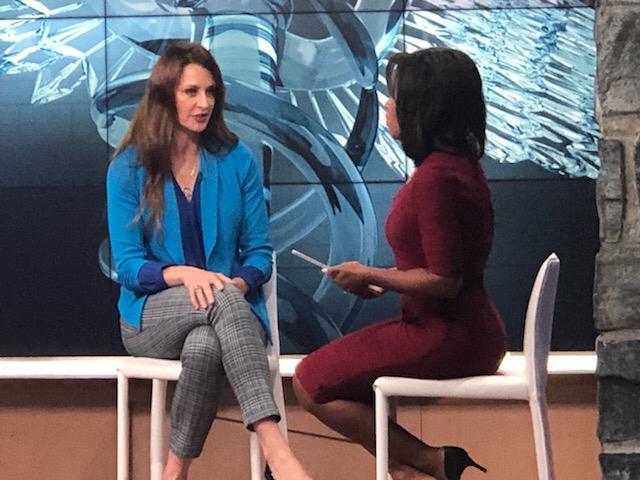
You are a co-founder of Resilience Element 75 (RE75), focused on making resilience accessible to the world through film and wearable technology, your research and thought leadership have been showcased in publications such as Thrive Global, Women’s Daily Magazine, Elucid, Medium, you are an inspirational keynote speaker. What´s the recipe for your success?
Surround yourself with people you love working with – whose presence makes you better and inspires you. You are the average of the five people you spend the most time with. If you want to be successful, surround yourself with other people who are successful, and a rising tide will lift all boats.
What does a normal workday look like for you?
There is no normal day for me. I like the flexibility of creating each day. I have rebelled against routine in a way. Although, I would love to cultivate a better morning routine. Something more regular that includes exercise, meditation, and a morning Cacao.
What do you love most about your job? & what is the most difficult part?
I love helping people and being of service. To provide something meaningful that allows people to see their lives, experience, or relationships in a new light that is productive and insightful. I love receiving messages from people who attend my events or courses and say, something akin to, ‘When you said such and such a thing, it changed the way I see the world, and now I see things in a new light.’ Growth and self-actualization are the compounding of 1,000 of those ‘A-ha’ moments, I am honored to be a part of those moments. The most difficult part is not ever feeling like enough. I’ve really been confronting this thought process recently. As an entrepreneur, it’s really easy to doubt every decision and to never feel like my work product is good enough. I’ve been working on loving myself more in this area and getting to the root of these insecurities.
What is one strategy that has helped you to grow your business?
The key strategy is: the relationships I build with my clients and colleagues. It’s not only important who you know, but evermore than who you know, it’s how you’ve treated people and what they think about you. I am fortunate to have an ever-growing audience of colleagues, partners, clients, and followers who believe in me and in my work, and who have been personally and professionally impacted in exceedingly positive ways by Resilience Leadership.
“The key strategy that has helped me grow my business in a very short period is the relationships I build with my clients and colleagues”
As an entrepreneur, what is the one thing you do over and over and recommend everyone else does?
The second Practice of Particularly Resilient People is Productive Perseverance. The practice of Productive Perseverance is the intelligent pursuit of a goal, and navigating the polarity between maintaining the continued pursuit of a goal, despite obstacles, and, on the other hand, pivoting in a new direction in the face of diminishing returns. This practice is both an art and a science. During the pandemic, I have had many conversations with CEOs, Founders, and Executives, not to mention actors, artists, and musicians about how they intelligently pursue their goals, given the magnitude with which, our world is changing.
For me, as an entrepreneur, relentlessly prioritizing and reprioritizing my goals, along with regularly evaluating my business strategy is key. I often “play the video” of what my business model looks like end-to-end, and my team and I, along with my mentors and advisory board try to find weak spots or identify disruptors that could put my business at risk. Sometimes you must be brave enough break your own business model, or at the very least, try to break it to ensure the model is sound.
What are the do and don’ts in female leadership?
Female leadership is a very nuanced thing. I have received many messages about what it means to be a female in leadership from society, and I find that there is often a spotlight on female leaders, and that I walk a very thin line. For example, we often want our female leaders to be empathetic and authentic, but not too emotional. Female leaders receive messages to be firm, but not too strong. Be driven, but not ambitious. I had the idea to write a book one day focused on navigating female leadership in an effort to encourage society to give female leaders more grace, and to encourage more women to take on leadership roles.
Everybody has had dark moments in their lives, what have you done to get out of that phase?
For me, it is to recognize that there is a lesson in those dark moments and not run from the shadows. There is light work, which is the self-reflection and growth related to our strengths, and there is shadow work, which is allowing ourselves to investigate the dark places of our past and psyche, in order to learn and grow. I believe we need to be more comfortable allowing ourselves and others to engage in a full range of emotions, not simply the feelings that are comfortable or easy. For me, it’s been important to feel all of my feelings and recognize that each feeling and experience is an important lesson.
Enlarge

What do you like to do in your spare time?
In my spare time, I love international travel and going on adventures. For example, I would love to swim with Whale Sharks, see the Gorillas in Uganda or Rwanda, and take in the statues at Easter Island. While many of us across the globe are in quarantine, I am pursuing other passions. I love fitness, film, and cooking new recipes along with reading and writing. I would love to get my commercial helicopter license in the future.
Many authors say women can and must strive to have everything – a shining career, a blossoming family life and a perfectly balanced lifestyle all at once, others point out that– then women are placing unrealistic expectations on themselves if they believe they can have it all, you have kids, I don´t know if you are married, so according to your experience, what do you think about these statements?
The most important aspect is that our dreams, as women, and men, are our dreams. It’s easy to get caught up in doing what we think we should do, living a life we think we should lead. Acting out of duty, to please others, or to because we think we “should” is dangerous because it’s easy to lose track of how we want to live our one wild and precious life, and instead, follow a path we think others want for us. If you want a career and children, that’s wonderful. If you want to found a company and create a product or service that enhances people’s experience in the world, do it. I believe women are often held back by not dreaming big enough. So, if you want to know what is truly possible, take your dream, and then dream bigger. Talk to friends, family members, your partner, mentors, and teachers and tell them your dreams, and then ask them how you could dream bigger.
The key is to focus on progress, not perfection. In addition, the word balance often leads women astray. My life is never balanced in any given moment. Many times, I have spending long hours at work, but not being as present as I’d like to be as a mom. Other times, I am very present with my children, attending their field trips and performances, and I feel like I am not working at full capacity as a professional. Recognize that as with all things, your contributions and focus will continue to shift. Focus on being present and doing your best.
“Challenge is inevitable and is often placed in our path to ask us how much we truly want a goal. Challenge is the comma in the sentence asking us if we want to keep going, not a period at the end of the sentence”
What are your plans for the future?
My plans for the future are to keep dreaming bigger. And bigger. I would like to grow my company, Resilience Leadership, into an eight-figure business in the next three to five years, and each year, I want to work ½ a day less. So, as I focus on my future, right now, I am laying the foundation to continue to expand my company, while focusing on products and services that will make a meaningful difference in the world, yet not be dependent on my capacity to deliver.
There is still the glass ceiling for women in the world: Fewer opportunities, jobs underpaid just for that fact of being a woman, etc. Have you experienced with the glass ceiling? If yes, what are the biggest challenges you have faced and how have you overcome them?
The glass ceiling can be sneaky. One of the insidious elements of the glass ceiling is that often women are not aware that they are missing opportunities or being paid less for their work until this inequity is exposed. I am not aware that I have experienced the glass ceiling directly, and certainly I have seen many professional women who were limited in their careers by the glass ceiling. I work with many female leaders and accelerated leadership development programs for women in order to share The Five Practices of Particularly Resilient People in an effort to give women the tools and stamina to continue to pursue their goals and dreams, even when they encounter inequity, or hit the glass ceiling.
What tips, can you give to young girls who want to become an entrepreneur like you?
For young women, I would say:
- Find a mentor - or person who is doing the work you want to do in the future and learn everything you can from that person. We can’t be what we can’t see, so having someone in our lives who shows us the roadmap to become an entrepreneur or pursue professional goals is invaluable.
- Recognize there will be setbacks – encountering challenge doesn’t mean we’re doing something wrong. Challenge is inevitable and is often placed in our path to ask us how much we truly want a goal. Challenge is the comma in the sentence asking us if we want to keep going, not a period at the end of the sentence.
- Know your “why” – there are times when we face challenge, change, or complexity, and it’s easy to give up. When we remember our “why”, the reason we do the work we do, it’s easier to keep going when we are connected with our core purpose.
Enlarge
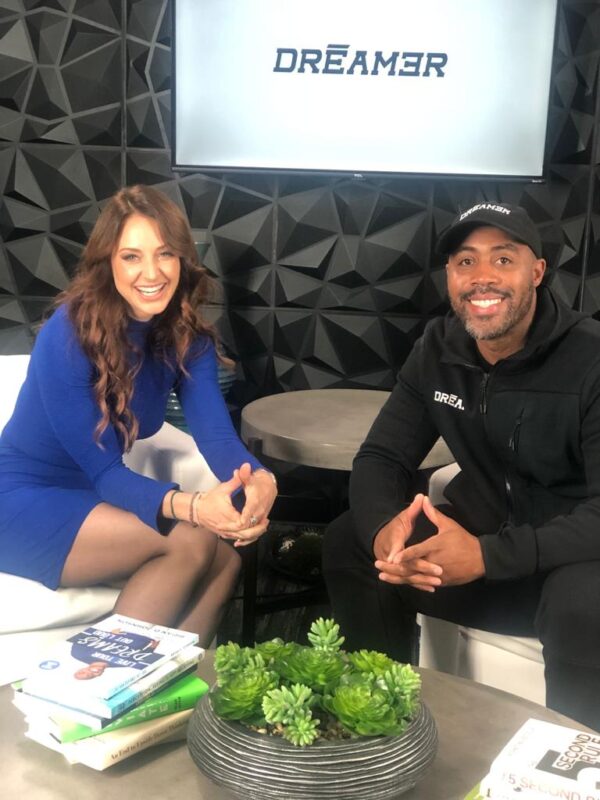
I think in your position, many people may have the wrong idea of who you are, and what do you (professionally), with this idea in mind, what is being Taryn and what´s not?
This is a fascinating question. For me this gets to the heart of the perceptions other people have about me and project onto me versus the person I truly am. I once had a man sit down next to me and say, “Well, you’re beautiful, so you must not have any problems.” He didn’t know a single thing about me, but he looked at me, and determined that, based on the way I look, my life must look and be a certain way. The first misconception then is the idea that being attractive means that life is easy, or even easier. I’ve always looked the way I look, so I don’t have any insight about what it means to live outside of this skin. However, I can tell you that I have been negatively targeted based on how I look. I had a stalker in four years during high school who targeted me, and as his behavior escalated over time, and culminated in him brutally raping another woman in my neighborhood, I developed Post-Traumatic Stress Disorder (PTSD).
I can feel shy, even a bit anxious in large crowds of people. In the past, people have taken my shyness to mean aloofness, but I am simply just nervous like everyone else. Another misconception that I have encountered is the belief that a person can only be smart or attractive, and generally not both. People who meet me in-person are surprised to learn I have an advanced degree, and people who have read my writing and research, at first, may disbelieve that I am the person whose articles, blogs, and posts they have been reading. Overall, I believe that it’s important that we continue to gain an awareness of the aspects of ourselves that we project onto other people and take time to get to know people we encounter instead of assuming we can size them up in a few minutes. No person can be sized up that quickly!
Enlarge
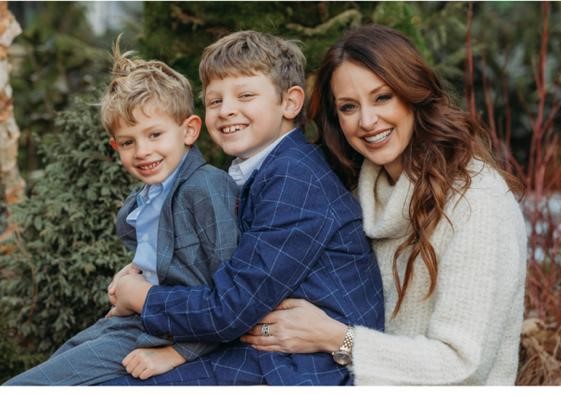
Who is the woman you admire the most and why?
The woman I most admire is my paternal grandmother Marjorie Stejskal. She got sick when I was quite young. I regret that I didn’t have the opportunity to know her well. She raised three boys, got her doctorate degree in Education, and became a very respected school principal in the 1950s and 1960s when these types of opportunities were much more limited for women. Her accomplishments gave me the idea that I could pursue an advanced degree and leadership positions. I also admire all single mothers or mothers who are heads of their own households, simultaneous working and caring for their children. This is one of the hardest jobs, to lead a household, hold down a job, and raise children, that I can imagine.
Something else do you want to add or share with us?
In closing, I would like to speak about fear. For those that are feeling scared, I want to invite you to embrace this emotion. Often, we think of fear as being an emotion we’d rather ignore, numb, or not acknowledge, but as I mentioned earlier, all feelings are important information for our growth and development. A while back, I realized that the word “scared” and the word “sacred” are essentially the same word with a “c” in a slightly different place. The wisdom in this discovery is that, rather than running from fear, we can embrace fear as a great teacher, a guru even.
Name: Taryn Marie Stejskal, Ph.D.
Sector: Management Consulting
Company: Resilience Leadership
Designation: Chief Resilience Officer (CRO)
Country: USA
Social media:
@drtarynmarie - IG
https://www.linkedin.com/in/taryn-marie-stejskal-ph-d-a4937620/
Business Facebook: https://www.facebook.com/DrTarynMarie
Twitter: @TarynStejskal
Tags
@TarynStejskal / coach / doctor / DrTarynMarie / Flourish or Fold / neuropsychology. / Resilience Leadership
@TarynStejskal / coach / doctor / DrTarynMarie / Flourish or Fold / neuropsychology. / Resilience Leadership


